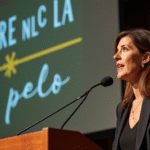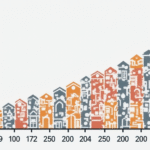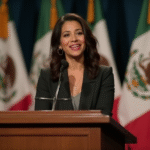Introduction
The past five years have been marked by a series of crises, including the COVID-19 pandemic, conflicts in Ukraine and Gaza, and the destructive US trade policies. These events have put immense pressure on the post-war world order, with multilateral institutions like the United Nations and the World Trade Organization struggling to provide effective responses in an increasingly complex geopolitical landscape dominated by great power politics.
The Need for a Pragmatic Approach
In this context of economic fragmentation and political disorder, the Global South and philanthropic organizations must adopt a pragmatic approach to protect development gains and seek climate resilience. This involves forming thematic coalitions, strengthening local institutions, and capitalizing on international leadership opportunities such as South Africa’s G20 presidency and India’s BRICS+ leadership in 2026.
Brazil’s Role in Climate Action
Brazil, as host of the 2024 UN Climate Change Conference (COP30), is likely to play a significant role. The conference will focus on fulfilling existing commitments and scaling up results, as well as updating Nationally Determined Contributions (NDCs) under the Paris Agreement. According to the UN Environment Programme’s 2024 Emissions Gap Report, NDCs need better alignment with the agreement’s path to limit global warming to 1.5°C above pre-industrial levels. This requires more international collaboration and financial architecture reforms.
Financing for Climate Action and Sustainable Development
Despite the decreasing cost of renewable energy, fossil fuel use continues to rise, accelerating climate change and biodiversity loss. Financing for climate action remains insufficient, with the agreed-upon “new collective quantified financing target” in the COP29 Baku, Azerbaijan, being grossly inadequate. The situation is expected to worsen as the US focuses inward and other developed countries increase defense spending.
The advancement towards the UN’s Sustainable Development Goals (SDGs) has stalled due to a persistent $4 trillion annual funding shortfall. Although progress is real and substantial, it remains fragile and unequal. As official development assistance dwindles and global debt reaches historical highs, innovative methods to mobilize domestic and foreign capital are crucial.
Philanthropic Organizations’ Role
Southern countries are learning not to rely on empty promises from wealthy nations, shifting their focus to practical measures. Brazil launched an Action Agenda for COP30, while South Africa’s G20 presidency emphasized the link between climate, development, and debt. Governments in the Global South, especially in Africa, must improve fiscal resilience to increase long-term climate action investment and respond swiftly to climate-related crises.
Philanthropic organizations should reassess their role in providing aid to national and regional actors for climate and development goals. This involves addressing funding gaps in low- and middle-income countries and mitigating transition risks while addressing existing priorities like inflation, unemployment, and social unrest.
Collaborative Efforts
Philanthropic organizations should focus on improving their reach and mutual coordination, particularly in Africa, which hosts only a few major organizations. Partnerships for Just Energy Transition in South Africa, Vietnam, and Indonesia demonstrate the valuable role philanthropic organizations can play in creating national platforms under government direction to coordinate public and private financing for climate and development goals.
Climate Action in the Context of Development
In Africa, climate action must be situated within development. This means helping countries reduce excessive debt, strengthen fiscal resilience, and design credible investment plans to facilitate climate action. This should generate the countercyclical economic boost needed for sustainable growth. However, philanthropic organizations must engage in multilateral processes and leverage their flexibility, risk tolerance, and trust-building capabilities to promote the Global South’s interests through institutional and human capacity enhancement.
Key Questions and Answers
- What is the current geopolitical landscape? The post-war world order faces immense pressure due to recent crises, with multilateral institutions struggling to respond effectively.
- How are philanthropic organizations adapting? They are shifting from relying on wealthy nations’ promises to focusing on practical measures, forming coalitions, and strengthening local institutions.
- What role does Brazil play in climate action? As host of COP30, Brazil will focus on fulfilling existing commitments, scaling up results, and updating NDCs under the Paris Agreement.
- Why is financing for climate action and sustainable development crucial? Despite decreasing renewable energy costs, fossil fuel use continues to rise, accelerating climate change and biodiversity loss. Financing remains insufficient, with the agreed-upon financing target being grossly inadequate.
- How can philanthropic organizations improve their impact? They should focus on improving reach and coordination, engage in multilateral processes, and situate climate action within development contexts.






